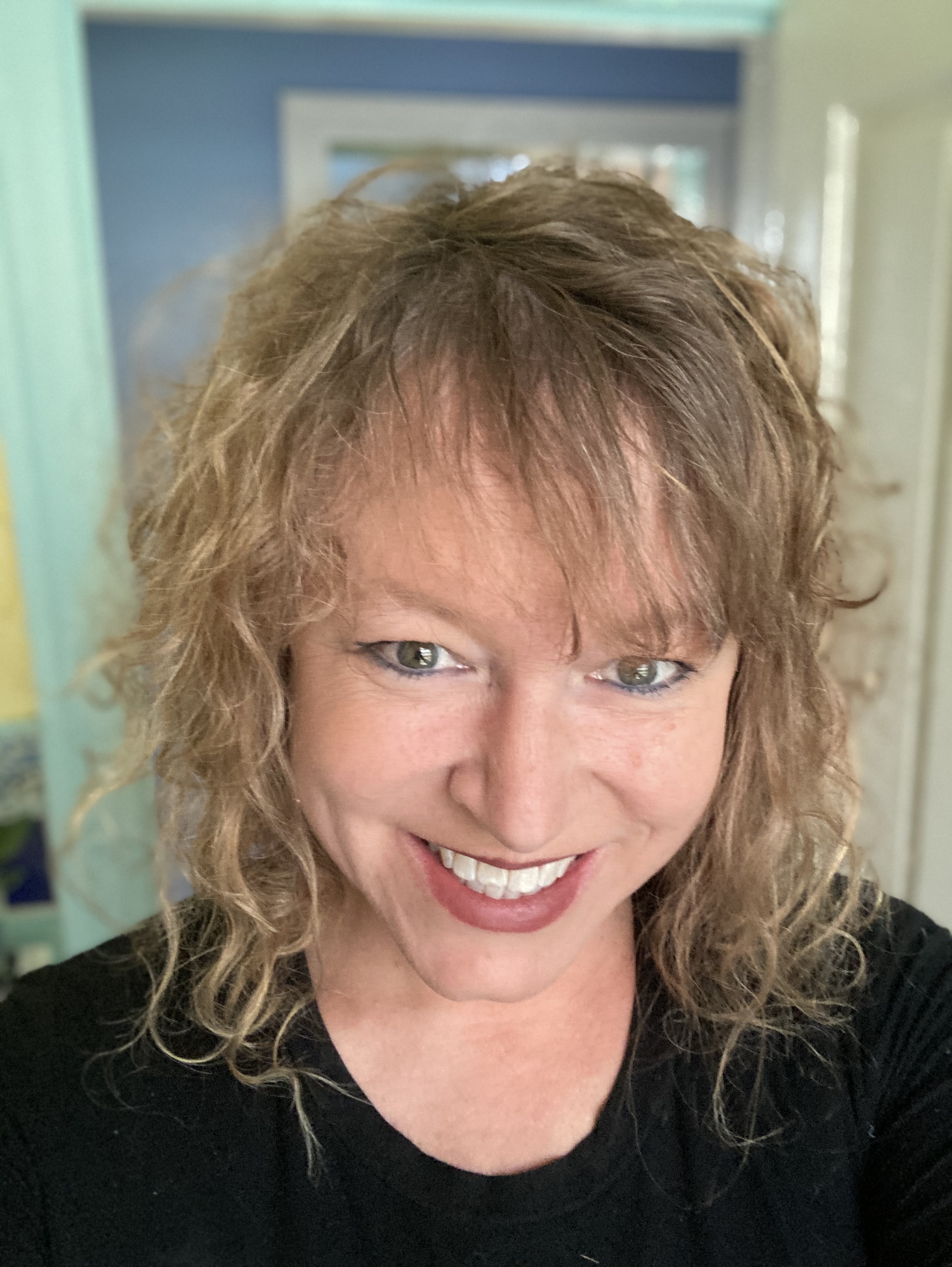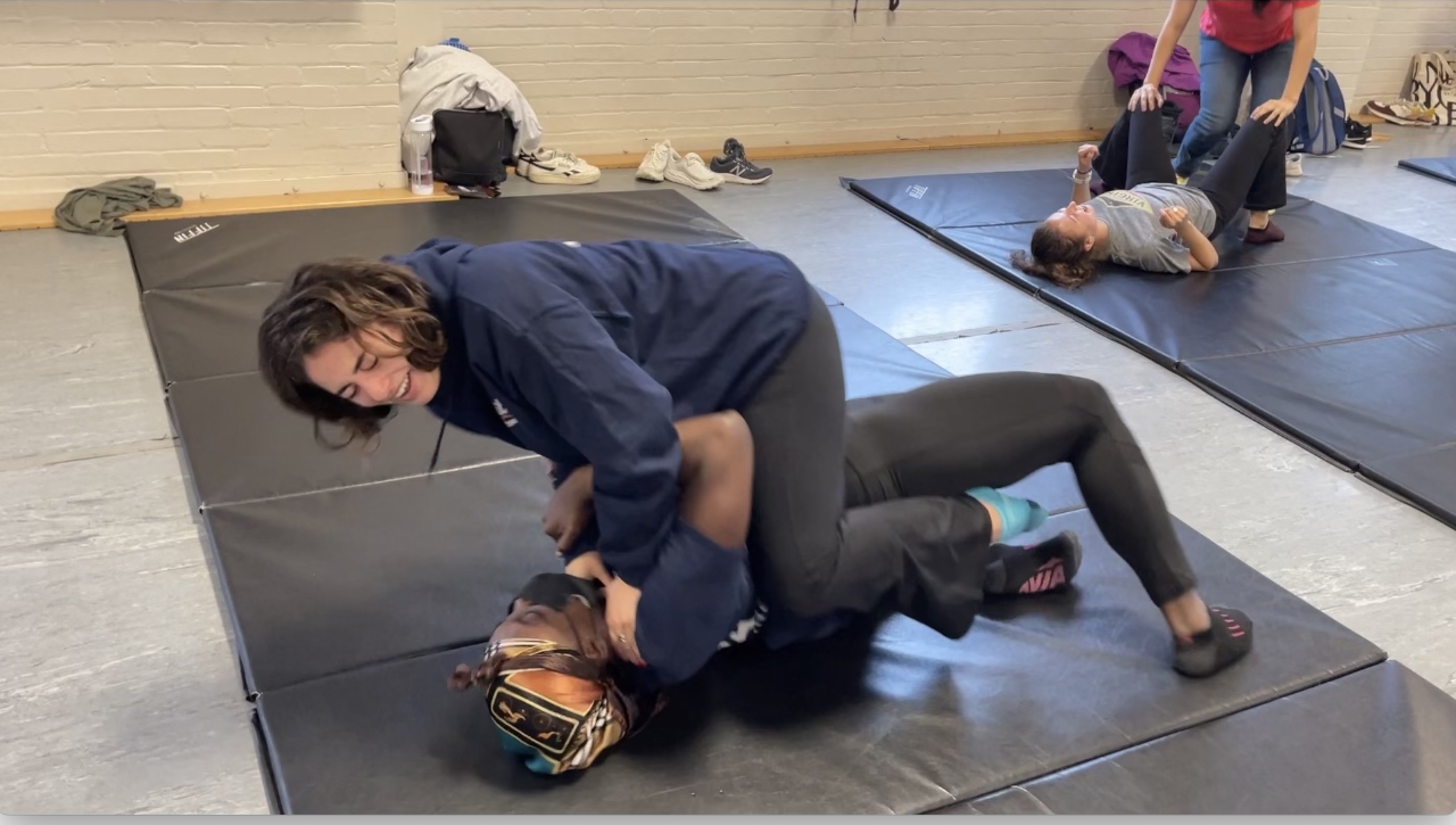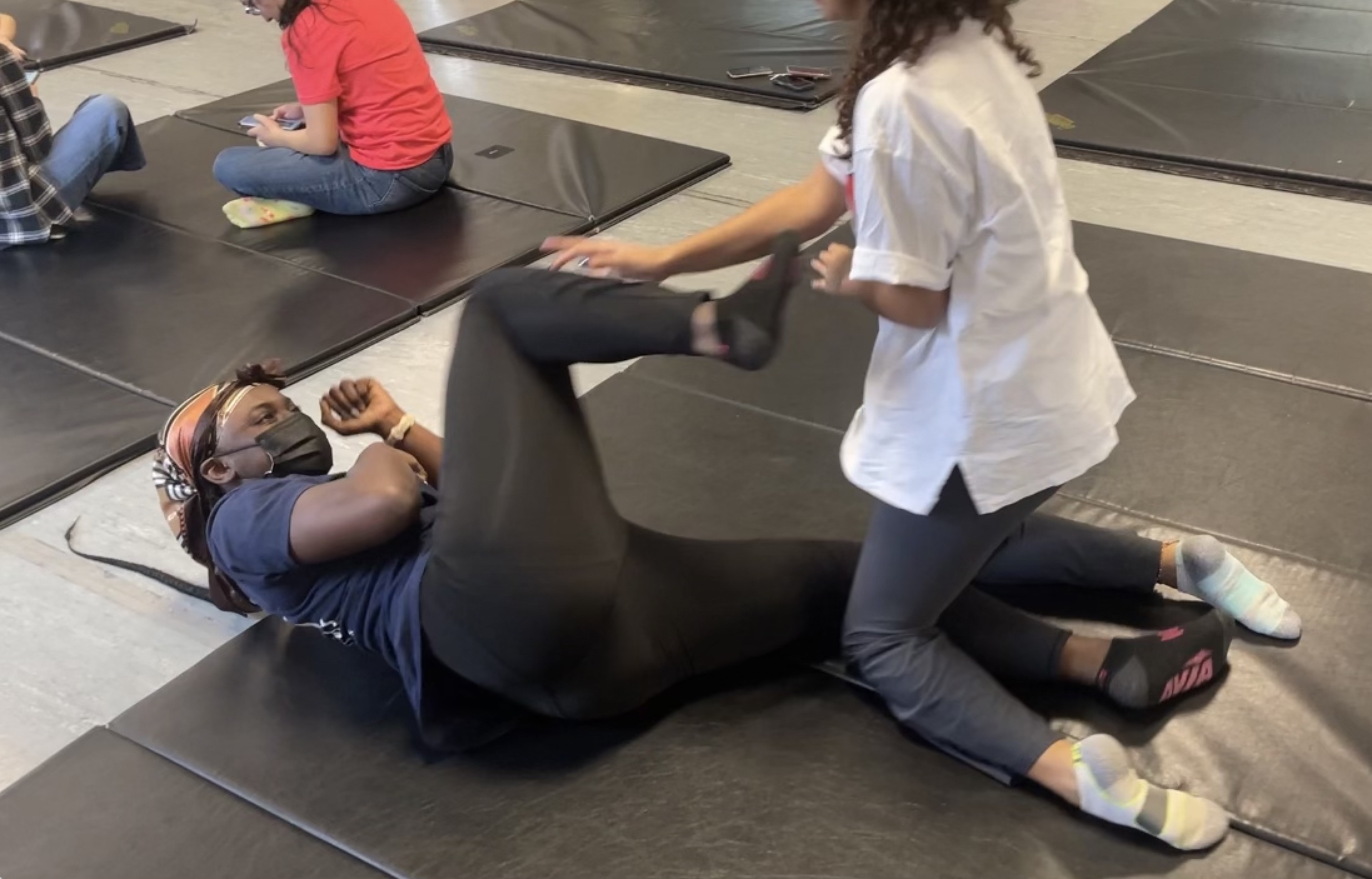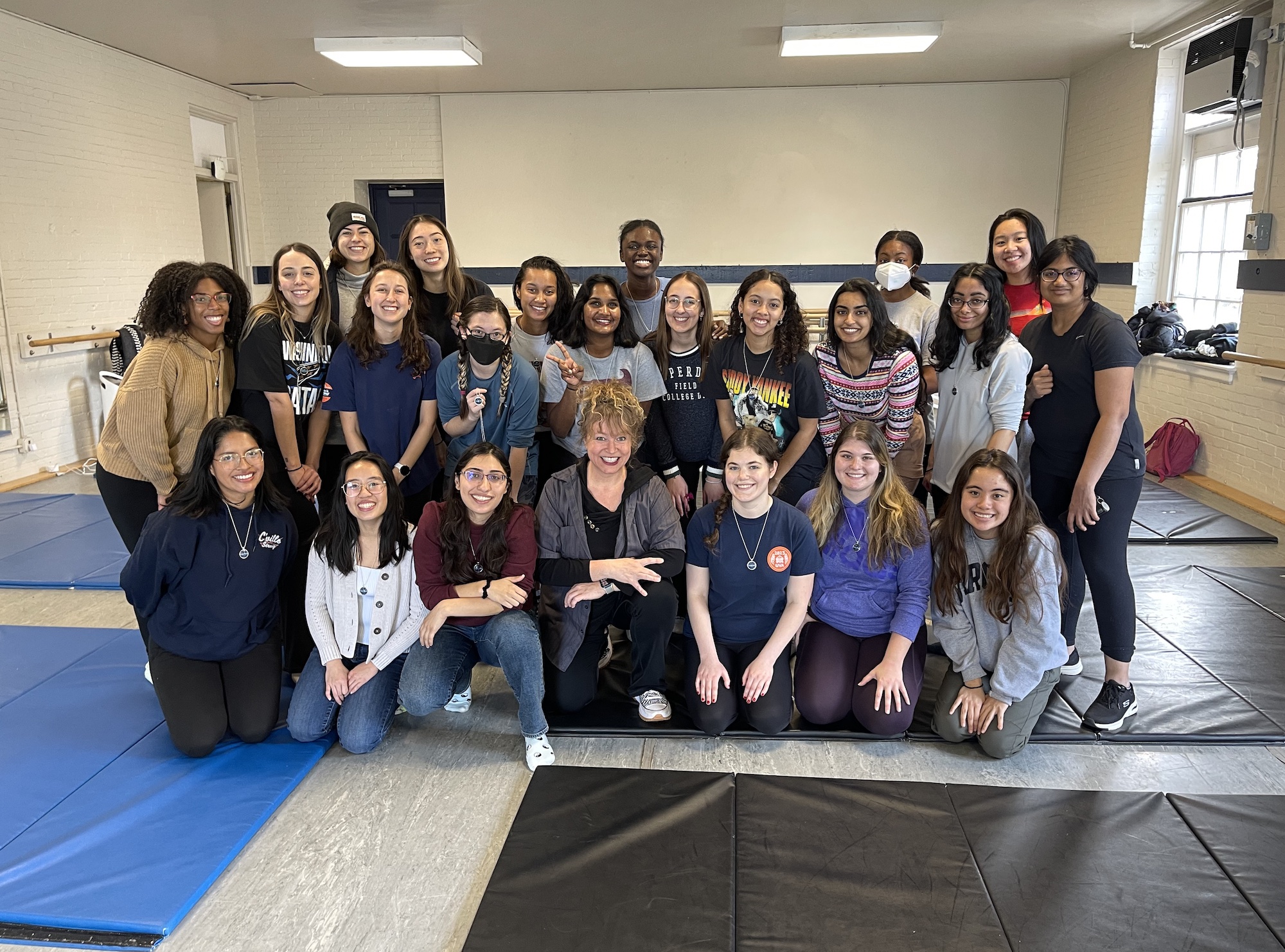UVA Women’s Self-Defense Class Taught for 20 Years

Lisa Speidel is an Assistant Professor in the Women, Gender, and Sexuality Department and is also a Certified Sexuality Educator (CSE) through the American Association of Sexuality Educators, Counselors, and Therapists (AASECT). Lisa teaches Human Sexualities, Men and Masculinities, Gender-Based Violence, Pleasure Activism and Gender and Sexuality Studies. Her book The Edge of Sex: Navigating a Sexually Confusing Culture from the Margins was published by Routledge in 2020. Lisa is working on a new book for Routledge on the multiple identities of bisexuality.
February 2023 marks the 30th anniversary of my national certification as a Rape Aggression Defense (RAD) women’s self-defense instructor. When I became certified in 1993, I was an employee of Charlottesville’s Sexual Assault Resource Agency (SARA), and I had little idea how much of a role self-defense would play in my future.
For 10 years I taught RAD courses for SARA, and when I decided to start graduate school at the UVA School of Education, I figured I was done teaching self-defense. Then I met the fantastic Dr. Diane Whaley, the director of the UVA Lifetime Physical Activity Program, who asked me to teach a credit-based women’s self-defense course. Teaching this class during graduate school inspired my dissertation on exploring the intersection of race and gender through self-defense training. When I received my Ph.D. in 2010, I was hired by the UVA Women, Gender, and Sexuality department and fortunately, I have been able to continue teaching self-defense on top of my full-time job!
This semester is the 20th year I have had the privilege of teaching UVA women these self-defense techniques. I love watching the students’ progress each semester, as they learn to use their voices, increase confidence in their bodies, and gain a true sense of empowerment. This is not easy, given how often women are bombarded with messages to hate their bodies and to see certain parts as flawed. They often believe they are physically weaker and do not have control over their physical selves. Overwhelmingly, the message is that women need to be protected by others and are too frail to take care of themselves.

Women also learn from an early age they are highly susceptible to violence, and we are inundated with safety tips, telling us to steer clear of certain situations. Typically, these avoidance techniques often reinforce victim blaming, and if we are assaulted, we are still questioned, “Why did you put yourself in that situation?” We are told to communicate clearly with men so they won't assault us, while bystanders are trained to help keep us safe -- for instance, by distracting a man who's on his way to his room with a woman who is obviously drunk.
Despite these risk-reduction measures, we still may end up in situations where we typically do not have training on how to respond. What if we decide to be sexual with someone, but they do not respect our boundaries? What if they ignore what we say? What if we actually could use our bodies in precisely the way an assailant is assuming we can't? Wouldn't it be nice to believe in our bodies and that we have the right and ability to protect them?

I have learned so much about the safety needs of women over the decades, including the fact that most assaults are being committed by someone known to them. Teaching this course has also inspired the creation of a new curriculum. Although the RAD course is an empowering curriculum, the main focus is on stranger assault, which is only about 10% of assaults that are happening to women. It does not mean this information is not important or helpful, but I realized that I wanted a curriculum that focused on the majority of women’s realities. Thus, 10 years ago I developed a new curriculum with my colleagues Brian O’Donnell, formerly of the Charlottesville Police Department, and Gordon Emery, the owner of the Charlottesville Brazilian Jiu-Jitsu school. This curriculum, called REAL Self-Defense for Women, is designed to address the unique dynamics of being assaulted by someone known to us. The program explores the mental, emotional, and physical aspects of personal defense in a sexual assault dynamic with a focus on the use of gross motor skills applied to the weak points of an attacker.
Self-defense is not the cure-all. Not all women feel that fighting back is the best option, or some may not be able to fight back, and we make the best choices we can when we are in threatening situations. But self-defense can increase practical options in resistance and our chances of thwarting an assault. In addition, the benefits go beyond the technical skills that are learned. The comments in my evaluations reinforce this each semester, such as when one student wrote, “This is such an empowering course. I didn’t want it to end!” or “This is a great course for all female students. It really boosts your confidence in yourself to be able to defend yourself! I believe every female student should take this course!”

When I think of myself 30 years ago, I had no idea what impact I would have, nor the impact working with these students would have on me. I am so grateful for all I have learned from them and for the opportunity to teach this course for so long.
- UVA Club of Pasadena: Hoo-liday Party
- UVA Club of Middle Tennessee: Hoo-liday Party
- UVA Club of Culpeper: Hoo-liday Party